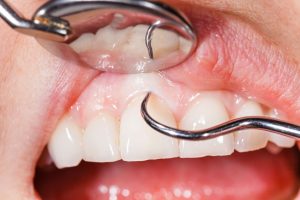The Truth About Root Canals
Root Canals Treatment
Root Canals are probably the most well-known dental term in the book. From references in movies to making jokes about it, and most of all to actually experiencing it. A lot of people around the world are forced to get root canals. There are a lot of misconceptions though, so it is important to keep our community informed. In today’s blog post we’ll explore the truth about root canals and find out just how they happen and what it takes to fix them. This way, you will be prepared and do the work to prevent a root canal from being needed. Don’t worry though, millions of teeth are treated and saved a year by this procedure. It is a widely effective method that gets great results!

What Causes A Root Canal?
If you have an infected or inflamed pulp, the innermost soft tissue of the tooth, you will most likely have to get an endodontic treatment. Endodontic treatment is the formal category that Root canals fall under. Such treatment must occur in the event of several circumstances. For instance, if the tooth has undergone multiple operations, it may be subject to infection. Also, if there has been excessive tooth decay, it will reach the pulp too. In the event of a chipped tooth, where the pulp has damage or exposure, it may also need a root canal. If you notice a tooth having a lot of sensitivity to heat or cold temperatures, or experience tenderness from eating, you might have to get it checked out. Sometimes there are even no symptoms. However, if you see discoloration and feel the pain in one of your teeth, it may need a root canal.
How Does The Procedure Work?
A root canal operation will begin with extensive X-rays and analysis of the damaged tooth to discern the best route to approach. Applying a local anesthetic to numb the area and protect from pain is next. Then endodontist places a small sheet is over the tooth to keep it clean and isolated. Then the endodontist will open up the crown of your tooth (the top layer) and remove the infected pulp from the core of the tooth. Once the endodontist clears the space, they place a compatible biomaterial into the tooth as a substitute for the pulp. This is usually from a rubber-like material they call gutta-percha. To secure the gutta-percha to the core of the tooth, the endodontist applies an adhesive cement to keep it tight. The doctor will then apply a filling to the crown afterward to close off the tooth. After the infected area has healed, you must return to your dentist and have a crown applied to the tooth. This will ensure that you can return to normal use after the procedure. Don’t worry, in case you were wondering it will not hurt as bad as you think. Most patients report that they are comfortable during the operation, and only feel slight pain after the surgery. Which fortunately basic over the counter medication can alleviate.
Contact Us If You’re In Need Of A Root Canal!
At Gentle Dental we dedicate ourselves to providing you with the utmost oral care. This includes being able to treat some of the more complex issues that can affect the teeth. A root canal is an old but still very formidable dental risk that needs to be taken care of immediately. Let us at Gentle Dental help you triumph and return your teeth to the best condition possible!
